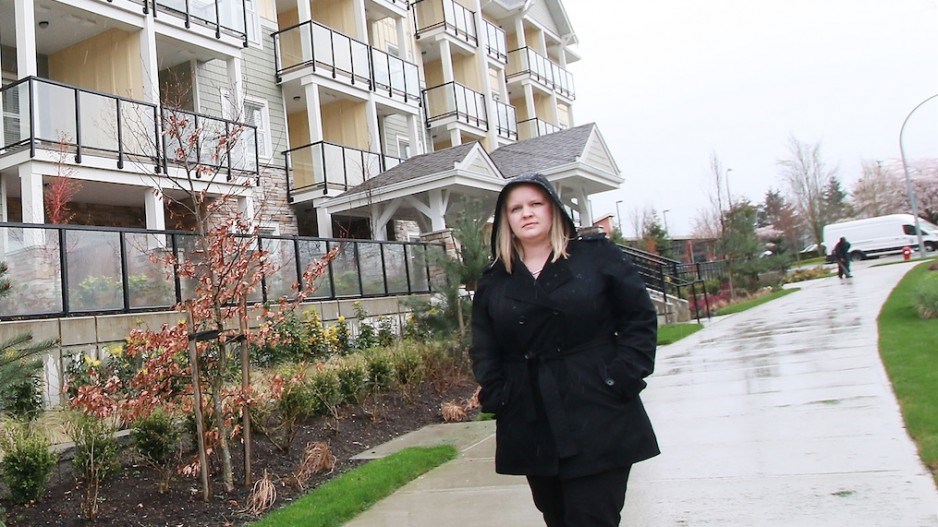Buyers of 40 homes in Langley learned the hard way earlier this month that buying a pre-sale contract for a home in B.C. comes with the risk that a court will break the pre-sale contracts if the developer goes into receivership.
Some also told Business in Vancouver that their experience is evidence that the B.C. government needs to step in with strict guidelines for developers conducting pre-sales and to issue fines when developers break rules and sell units multiple times and pocket deposits without putting them in trust.
BC Supreme Court Justice Shelley Fitzpatrick ruled April 4 that receiver Bowra Group Inc. should sell the 40 homes at Langley’s Murrayville House at market value to raise additional capital to pay lenders that lost money by financing insolvent developer 0981478 B.C. Ltd.
Original buyers of pre-sale contracts will have first right of refusal to buy the homes, which have each risen in price by an estimated 46%, or more than $136,525, since the pre-sales were signed two years ago, according to the judgment.
The move provides lenders, such as Forjay Management Ltd., Canadian Western Trust Co. and HMF Mortgage Fund Corp., with what is expected to be $5.46 million more in proceeds to split.
Murrayville House has another 51 homes that were sold to pre-sale buyers, but, because those units each had customized purchase agreements, they will be the subject of a future BC Supreme Court hearing to determine whether the homes should also be sold in the open market to help compensate lenders, said Cassels Brock and Blackwell LLP associate Matthew Nied, who represented a lender and suggested in court that pre-sale contract buyers be given the first right of refusal to buy the homes.
While some pre-sale buyers appreciate that gesture, Fitzpatrick’s judgment surprised many of the pre-sale contract buyers who thought that their contracts would be honoured.
Complicating the case was the fact that the developer sold 151 pre-sale contracts for 91 units, meaning that it sold contracts to buy many of the units two or three times, according to the judgment. One unit, it said, had been sold four times.
“I come from an area in finance where everything has so much compliance and regulation attached to it,” said Elyse Vroom, who bought a pre-sale contract for a unit and works in business development at Capstone Asset Management.
“If an individual did something like this in my sector, they would be fined and blacklisted forever.”
What exasperates Vroom is that 0981478 B.C. Ltd. principal Mark Chandler has been in receivership before.
His Chandler Homer Street Ventures Ltd. spiralled into receivership in early 2008, after the BC Supreme Court, in 2007, separately froze $35 million of Chandler’s assets after investors alleged he misrepresented real estate deals and forged a multimillion-dollar mortgage document.
More recent troubles for Chandler came last month when a BC Supreme Court ruling moved him one step closer to being extradited to the U.S. to face fraud charges related to a California condominium project about a decade ago.
Chandler has been a principal at other companies that have faced cease-marketing orders from B.C.’s Office of the Superintendent of Real Estate.
The Murrayville House experience has soured Vroom from wanting to buy any pre-sale contract in the future, in part because it is a challenge to do the necessary due diligence to be satisfied that a developer has a strong track record, she said.
Gary Janzen is another of the 40 pre-sale contract buyers at Murrayville House who is unable to move into a home that he thought he had bought.
The executive director of Abbotsford’s International Christian Mission Services told BIV that he and his wife are “trying to patiently figure out the best way to move forward” and that an appeal of the judgment could be one option.
The two had planned to downsize, so they sold their house in late 2016 on the understanding that they would be able to move into their new Murrayville House condominium soon afterward.
“We thought we’d go on vacation and then come back and move right in but it’s been 15 different places [where we’ve stayed],” he said. “My wife has three suitcases. I have two. We just sort of bounce around as we have everything in storage.”
For Nied, who suggested the analytical framework that Fitzpatrick used in making her decision, the key take-away lesson is that signing a pre-sale contract is no guarantee of a future home.
“Pre-sales can be a gamble,” he said. “If you’re entering that gamble with a … developer at risk of going into the insolvency process, at the end of your waiting period, you may not have a property to move into.” •




